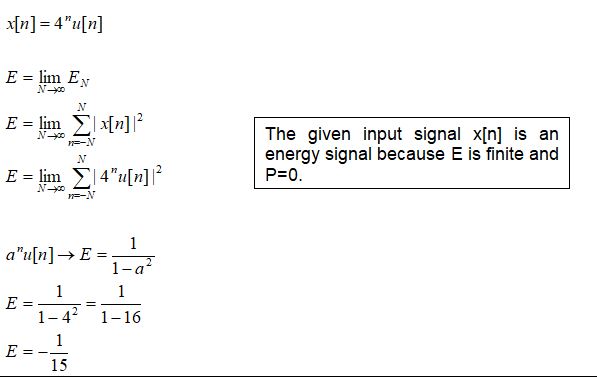Is the given input signal x[n] an energy or power signal?
The image shows what I did so far. Is it correct?
Thank you!
EDIT:
I solved it again, please tell me if I did it correctly this time.
$$E= \lim\limits_{n \to \infty}\sum_{n=-N}^N = |4^nu[n]|$$ $$E= \lim\limits_{n \to \infty}\frac{1-4^{2(N+1)}}{1-4^2}$$ $$E=\infty$$
$$P= \lim\limits_{n \to \infty}\frac{1}{2N+1}\sum_{n=-N}^N = |4^nu[n]|$$ $$P= \lim\limits_{n \to \infty}\frac{1}{2N+1}(\frac{1-4^{2(N+1})}{1-4^2})$$ $$P=\infty$$
Since both P and E are infinite, then it is neither an energy or power signal.

